Reality Check: What would happen to funding from EU post-Brexit?
- Published
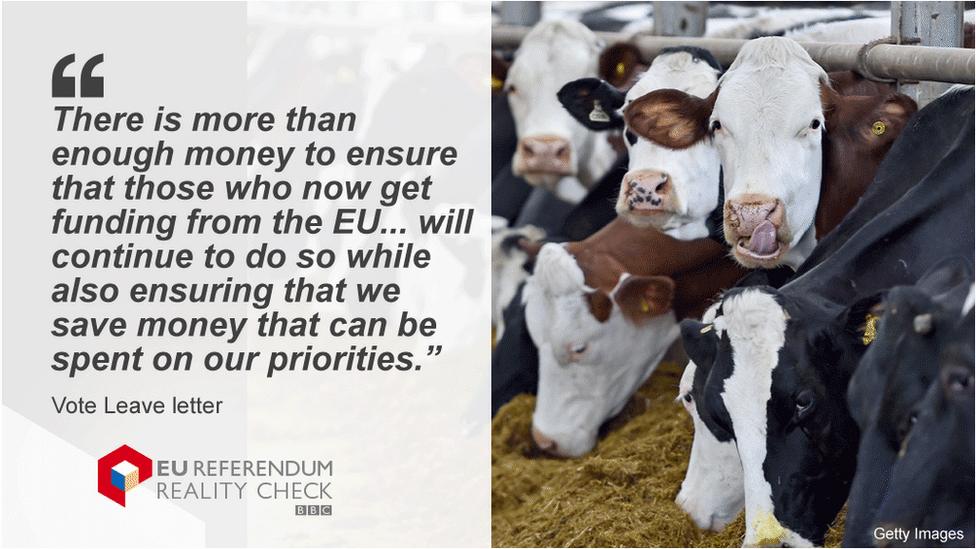
The claim: People receiving funding from the European Union would continue to get it until 2020 if there was a vote to leave the EU, and more money could be spent on the NHS and tax cuts.
Reality Check verdict: There would be the money to fund these spending promises as long as economic growth was not reduced - which most economists believe it would be - and the UK outside the EU did not continue making contributions to the EU budget. The people making these promises would not necessarily be in power following a Brexit.
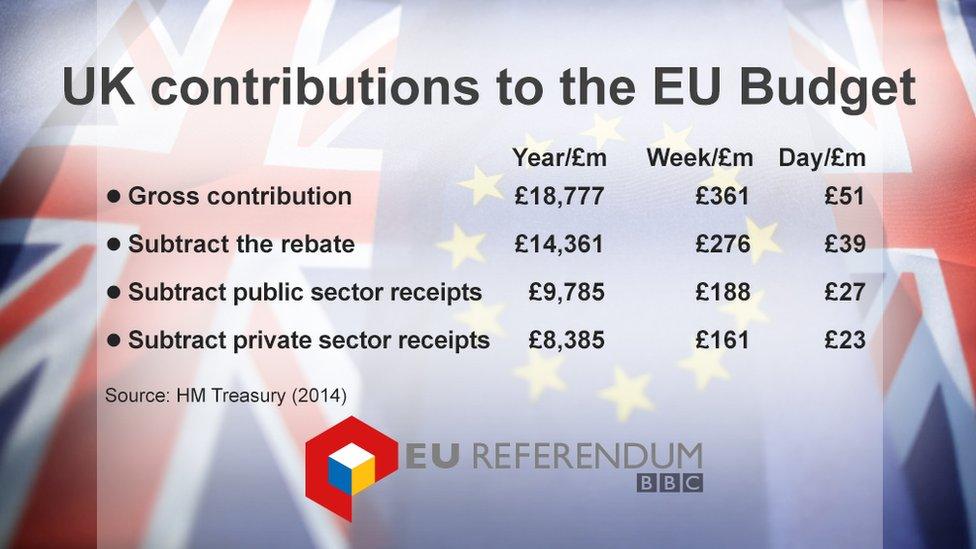
This table is a guide to numbers you may hear quoted. The figure in the second line, for example, is not the value of the rebate, it is how much is left after you subtract it
Vote Leave campaigners sent out a letter on Tuesday saying that if the UK left the European Union, then people who were receiving EU funding would continue to do so until 2020.
This is important because of the £276m the UK contributes to the EU budget each week about £115m comes back to the UK to be spent on things such as:
subsidising UK farmers
supporting poorer regions of the UK
funding research at UK universities
Vote Leave is saying that those groups will continue to be funded until 2020, unless the programmes for which they were receiving the money were due to finish before 2020.
After that, there would be £161m a week left over, of which, the letter says, £100m a week would be spent on the NHS and another £33m a week would go on abolishing the 5% value added tax (VAT) currently charged on domestic fuel.
There are a few caveats about this promise.
The first is that if, following a vote to leave the EU, the economy grows by about half a percentage point less than it would have done - and most economists believe leaving the EU would reduce economic growth - then the reduced tax take for the government would wipe out the savings from budget contributions.
If that was the case, then the funding for these projects would have to be found from elsewhere.
The letter says: "There is more than enough money to ensure that those who now get funding from the EU - including universities, scientists, family farmers, regional funds, cultural organisations and others - will continue to do so while also ensuring that we save money that can be spent on our priorities."
But while some of the signatories of this letter are ministers in the government, they are not currently in a position to make spending pledges.
Finally, it is possible that if a post-Brexit UK wanted to retain preferential access to the single market, it might still have to contribute to the EU budget, as Norway does, which would reduce the amount of money left over.



- Published10 June 2016
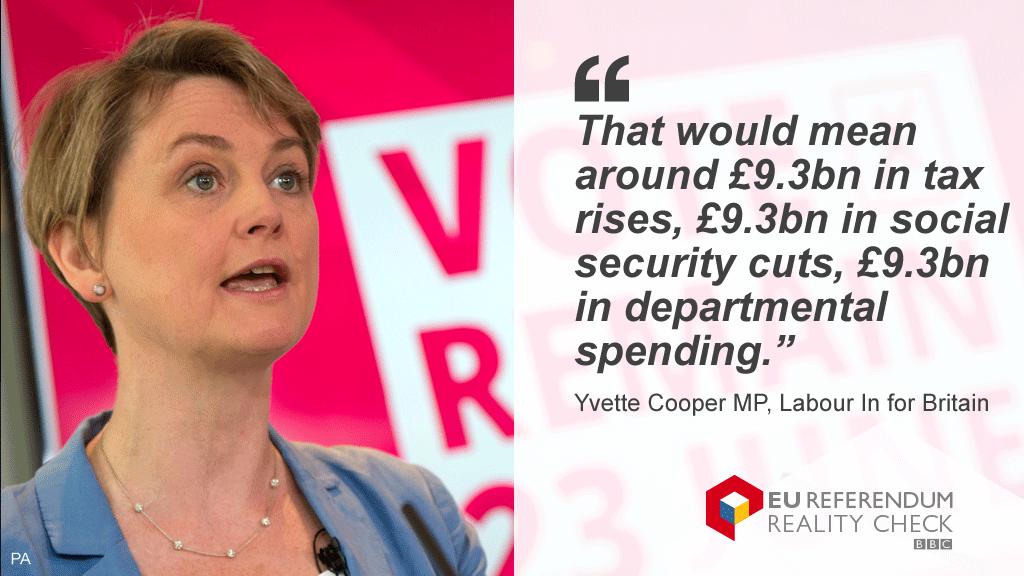
- Published9 June 2016
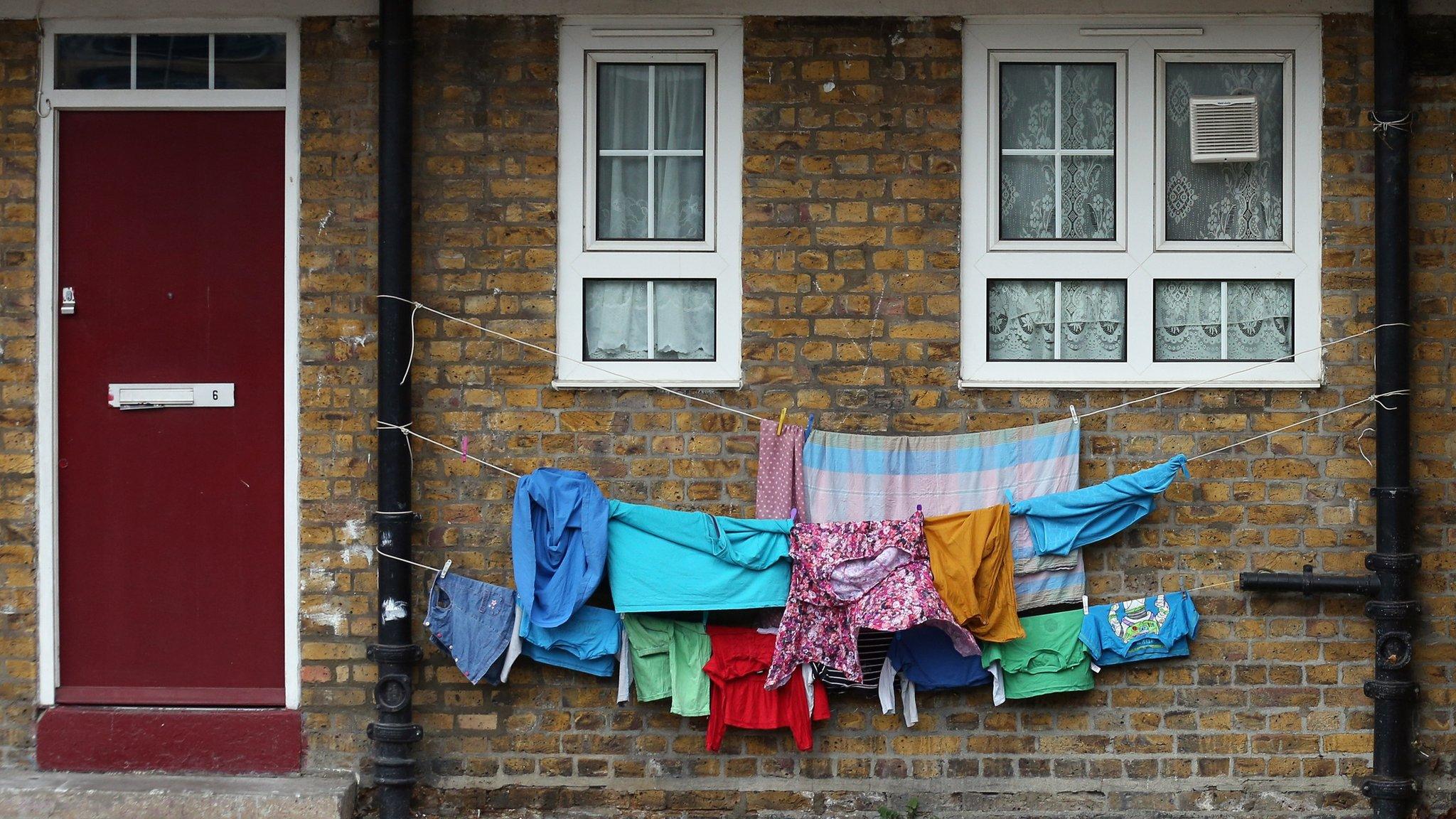
- Published25 May 2016
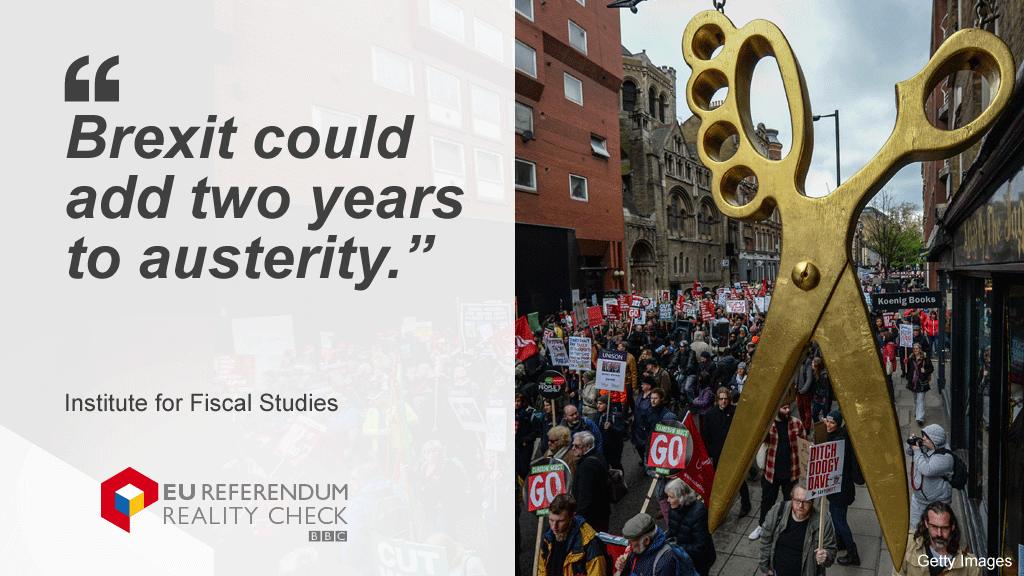
- Published22 February 2016
